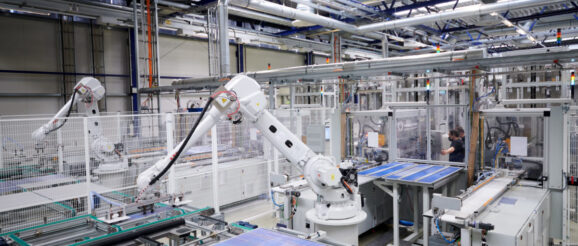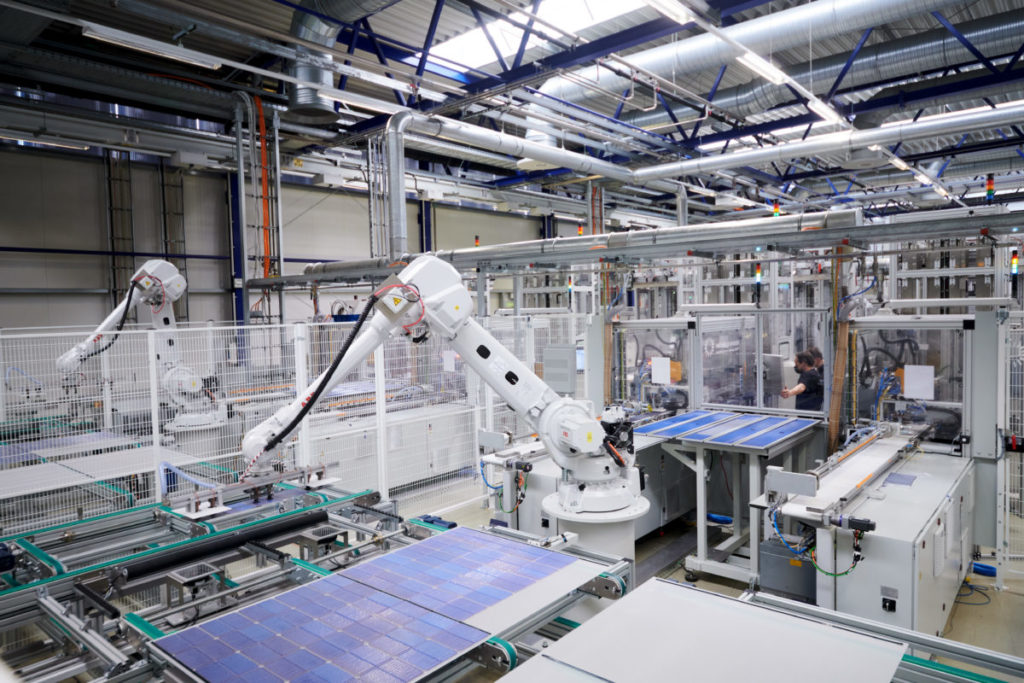Meyer Burger secures €200 million from EU Innovation Fund among others

The European Commission (EC) has granted €3.6 billion (US$4.04 billion) to 41 large-scale clean tech projects via the EU Innovation Fund, including three PV modules projects under the clean tech manufacturing category.
PV module manufacturer Meyer Burger’s project HOPE (High-efficiency Onshore PV module production in Europe) obtained €200 million from the fund. The project will involve constructing an additional 3.5GW of production capacity for solar cells and solar modules by Meyer Burger in Germany and probably in Spain.
According to the EC, this project will introduce new innovative heterojunction (HJT) technology, producing PV modules that can last longer with higher efficiency.
“We are very pleased that the EU Commission wants to support our project. The EU is not only contributing to the decarbonisation of the energy system and the transformation of the industry. It is equally investing in the resilience of supply chains in the solar industry,” said Gunter Erfurt, CEO of Meyer Burger.
Norwegian solar company NorSun also secured €54 million for a 3GW expansion of current ingot and wafer capacity in Årdal, Vestland. This would quadruple the company’s current capacity, while the EC said the wafers produced by NorSun have much lower environmental impact and resource consumption.
Erik Løkke-Øwre, CEO of Norsun, commented: “We are very pleased to receive this award. It sends a strong signal to NorSun and the Norwegian authorities that the EU is serious when they urge Norway to take an active part in the solar value chain reconstruction.”
“Norway can become the EU’s strategic upstream partner for the solar sector based on the significant process industry expertise in high-purity silicon, silicon ingots and wafers that we have in Norway,” he added.
Meyer Burger signed a supply agreement for silicon wafers with Norwegian solar energy company NorSun last February.
Swedish solar company Midsummer received a grant of over €32 million for a new 200MW plant to produce CIGS (copper indium gallium selenide) thin film solar cells. Its scalability and the potential to reduce greenhouse gas emissions were crucial to obtaining the fund, while the lightweight CIGS thin-film solar panels can be installed on low-bearing rooftops.
“This is of course a stamp of approval for our technology, our future plans and for us as a company. Our ambition is to become Europe’s largest manufacturer of thin film solar cells with several factories across Europe,” said Sven Lindström, CEO of Midsummer.
Lindström added that the grant will facilitate the establishment of a new facility, with the 50MW plant in Italy opening soon.
In total, the Innovation Fund’s third call for large-scale projects received 239 applications. Frans Timmermans, executive vice-president for the European Green Deal, said that the EU delivered on Europe’s green transition goals, and brought energy security, safety and prosperity to future generations.
“Because we have put a price on carbon emissions, Europe is getting the additional financial firepower that enables these transformative investments,” said Timmermans.

